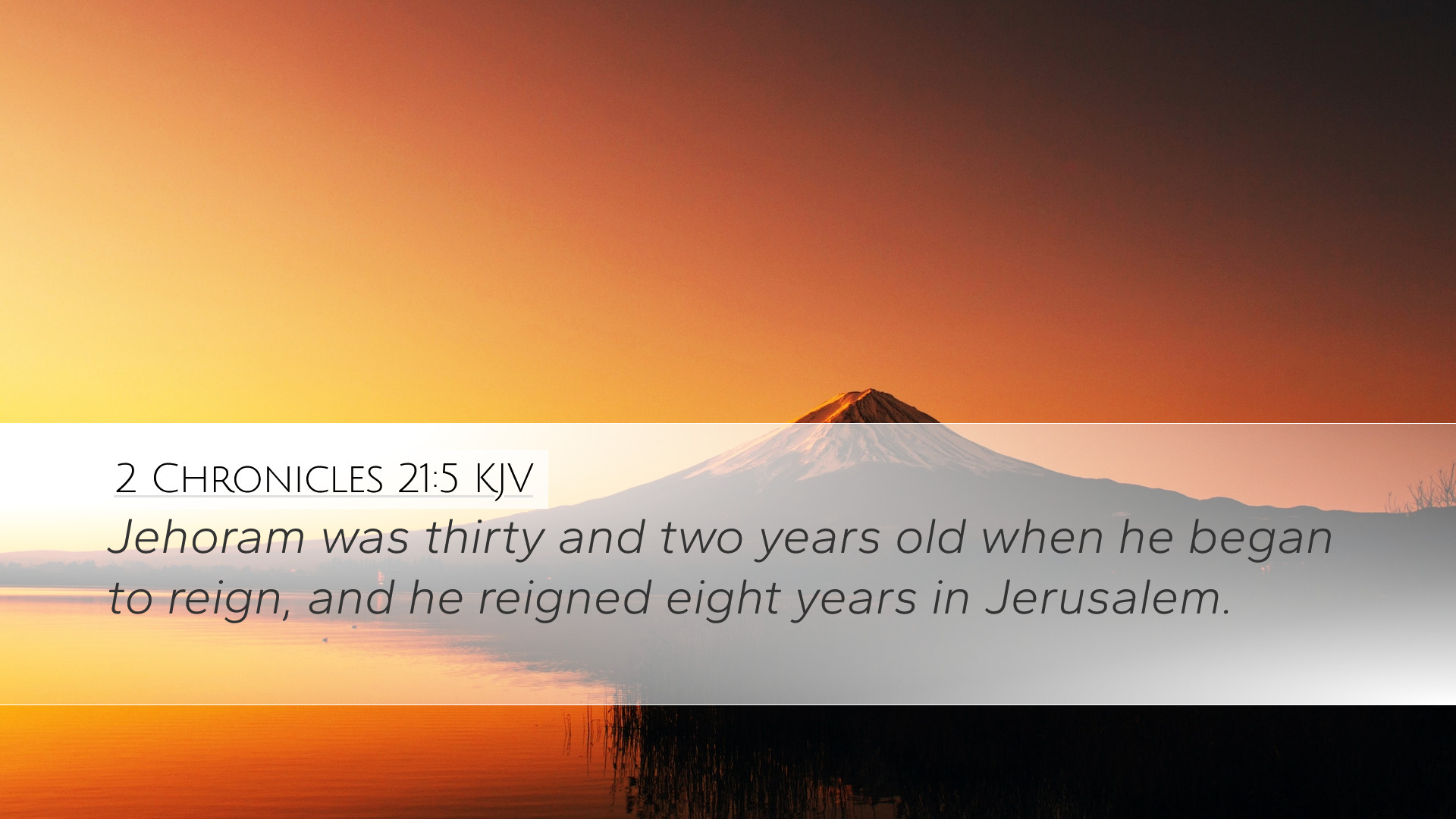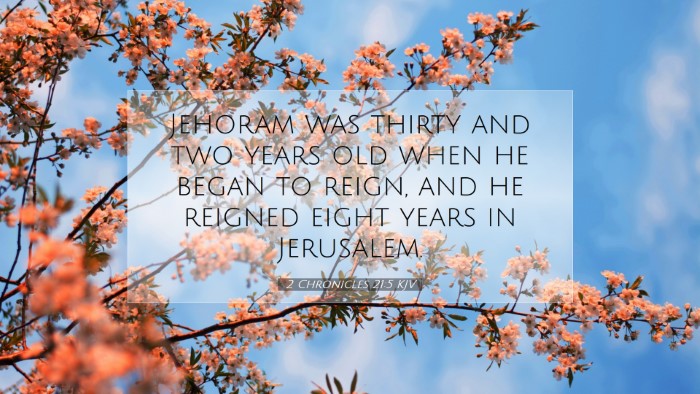Commentary on 2 Chronicles 21:5
Verse: "Jehoram was thirty-two years old when he became king, and he reigned in Jerusalem eight years." (2 Chronicles 21:5, NIV)
Historical Context
This verse marks the beginning of Jehoram’s reign over Judah. As the son of Jehoshaphat, Jehoram's ascension was a result of royal lineage, but his reign represents a pivotal moment in the decline of Judah's fidelity to Yahweh.
Insights from Commentaries
Matthew Henry's Commentary
Matthew Henry emphasizes the moral failings of Jehoram. He notes that Jehoram was influenced by his wicked wife, Athaliah, the daughter of Ahab. This influence led him to abandon the worship of Yahweh in favor of Baal worship, a significant departure from the faithful leadership of his father, Jehoshaphat.
-
Influence of Leadership:
Henry suggests that the character of a leader profoundly affects the nation. Jehoshaphat’s righteous rule contrasts sharply with Jehoram’s immorality.
-
The Consequences of Sin:
Henry notes that Jehoram's sinful actions had dire consequences, not only for himself but also for Judah as a whole, leading the nation further into idolatry and away from God.
Albert Barnes' Notes
Albert Barnes provides a specific focus on the age of Jehoram at his coronation, highlighting the implications of rulership at a relatively young age. He points out that Jehoram was 32 years old, which, in biblical terms, is considered mature but also indicates a potential susceptibility to the influences around him.
-
Age and Responsibility:
Barnes argues that this age position Jehoram in a situation where he was responsible for the spiritual direction of the kingdom, thus warranting the accountability that comes with leadership.
-
Short Reign:
His eight-year reign is depicted as brief, and Barnes posits that this indicates instability in his rule, likely exacerbated by his decisions to deviate from traditional worship practices.
Adam Clarke's Commentary
Adam Clarke takes a critical view of Jehoram's legacy. He elaborates on Jehoram’s policies and decisions, especially focusing on the apostasy that characterized his reign.
-
Corruption and Apostasy:
Clarke highlights that Jehoram’s alignment with the practices of Israel under Ahab and Jezebel led to severe degradation in moral and spiritual practices in Judah.
-
Judgment and Consequences:
Clarke underscores the theme of divine judgment that follows Jehoram’s rejection of Yahweh. His decisions to kill his brothers, a stark indication of jealousy and ambition, led to a weakened royal authority and ultimately chaos in the realm.
Thematic Elements
The verse encapsulates several significant themes relevant to ecclesiastical scholarship and pastoral teaching:
-
Leadership Morality:
The moral trajectory of leaders is paramount; Jehoram’s kingship highlights how personal integrity shapes wider societal ethics.
-
Legacy and Influence:
The commentary points out the enduring impacts of parental and spousal influences on a leader’s decisions, as seen in Jehoram's detrimental alliance with Athaliah.
-
Divine Sovereignty and Judgment:
God’s sovereignty in judging nations through their leaders is evident. The corruption often leads a nation away from divine blessing, marking a significant spiritual lesson.
Conclusion
In conclusion, 2 Chronicles 21:5 serves as a crucial reference point for understanding the decline of Judah during Jehoram's kingship, rooted in both personal and national failure to uphold covenantal faithfulness. This verse stands as a solemn reminder of the weighty responsibility borne by those in positions of authority, urging current and future leaders to adhere closely to the principles of righteousness as exemplified by their predecessors.


